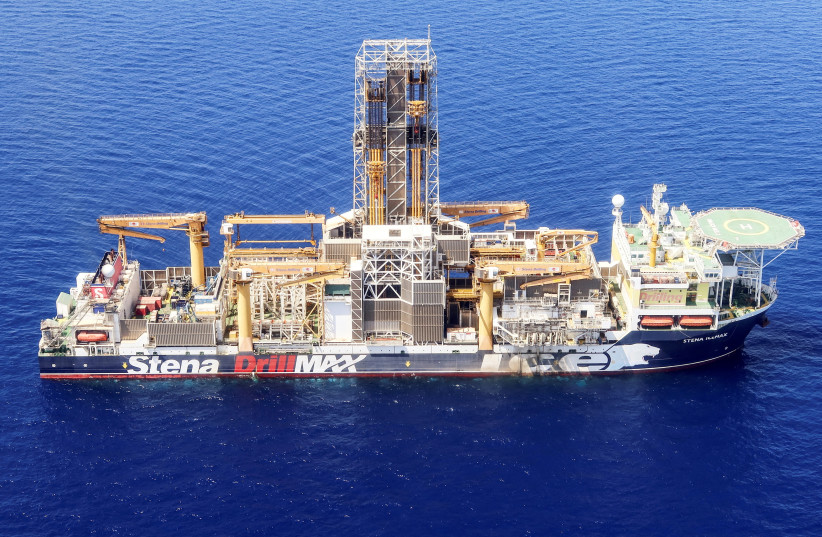Senior US and Israeli officials discussed the maritime border between Israel and Lebanon on the sidelines of the UN General Assembly on Tuesday, as the talks near their close.
National Security Adviser Eyal Hulata and Foreign Ministry Director-General Alon Ushpiz met with US Senior Adviser for Energy Security Amos Hochstein and White House Coordinator for the Middle East and North Africa Brett McGurk in what the Prime Minister’s Office characterized as a “good and productive meeting.”
The meeting came a day after Prime Minister Yair Lapid’s spokesman Roi Konkol said that “Israel believes an agreement on the maritime border with Lebanon can and must be reached in a way that will serve the interests of both countries. An agreement will contribute a lot and help regional stability.”
Konkol added that gas extraction from the Karish reservoir, which abuts the disputed area, “is not connected to the negotiations. The rig will begin producing gas without delay the moment it will be possible.”
Over the weekend, the Energy Ministry said that it is ready for Karish to be connected to Israeli infrastructure in order to test its natural gas delivery system in the coming days. The test comes before gas production and involves Israel sending gas from the shore to the Karish rig to check that it is working.

“Israel believes an agreement on the maritime border with Lebanon can and must be reached in a way that will serve the interests of both countries. An agreement will contribute a lot and help regional stability.”
Roi Konkol
Disputed maritime territory
Earlier Monday, Lebanese President Michel Aoun tweeted that “negotiations to demarcate the southern maritime borders are in their final stages, in a way that guarantees Lebanon’s rights to explore for gas and oil.”
Talk of the negotiations nearing their end has been ongoing for the past month, as Hochstein embarked on another round of shuttle diplomacy to Beirut and Jerusalem, as well as France, where he met with the leadership of Total Energies, which owns the gas exploration rights in Lebanon’s territorial waters.
The dispute between Lebanon and Israel is over the status of an 860-sq.km. triangle in the Mediterranean Sea, amounting to about 2% of Israel’s economic waters. Jerusalem originally agreed to split the area 58:42 in favor of Lebanon, but is reportedly willing to accept an agreement that is even more favorable to Lebanon.
<br>Hezbollah circling like a shark
Hezbollah leader Hassan Nasrallah has repeatedly threatened Israel in recent months over its development of the Karish reservoir across from the northern shores, claiming that it is in Lebanon’s economic waters even though the gas field is not in the disputed area.
The US has been mediating between the sides since 2020, but talks broke down in 2021 after four rounds when Beirut sharply increased its demands to almost triple the disputed area to 2,300 sq.km., abutting Israel’s Karish gas reservoir.
The lack of a resolution has made it difficult for Lebanon to tap into its natural gas resources at a time of severe government and economic instability.
